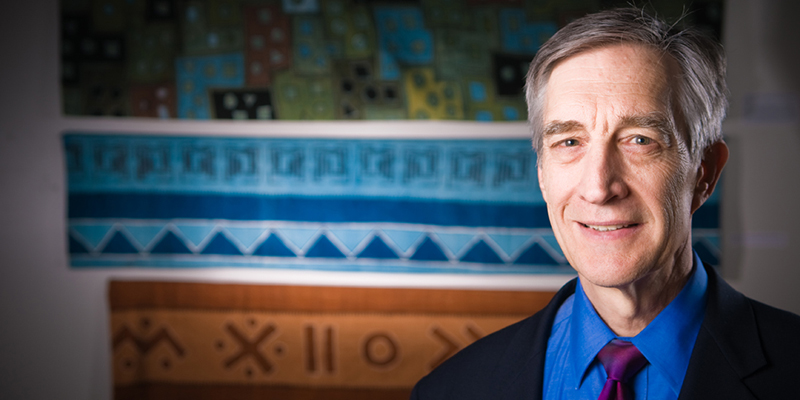Is It a War?
April 5, 2020
By Stephen Esquith, Dean of the Residential College in the Arts and Humanities
 We are still in the midst of the coronavirus pandemic, but COVID-19 already seems to be redrawing the boundaries of our lives and redefining who we are. We can see it in the loneliness of a campus reduced to its essential functions. We can feel it in the virtual interactions that define our more remote relationships with one another, where it is harder to know how to pay attention in a conversation that can be muted and unmuted, on camera or off camera, at any moment. And these are only two of the many ways in which our common academic lives have changed dramatically and abruptly.
We are still in the midst of the coronavirus pandemic, but COVID-19 already seems to be redrawing the boundaries of our lives and redefining who we are. We can see it in the loneliness of a campus reduced to its essential functions. We can feel it in the virtual interactions that define our more remote relationships with one another, where it is harder to know how to pay attention in a conversation that can be muted and unmuted, on camera or off camera, at any moment. And these are only two of the many ways in which our common academic lives have changed dramatically and abruptly.
At the same time, many RCAH faculty and students are finding innovative ways to interact virtually based on a feeling of community that was forged in face-to-face classroom experiences, and this should not be overlooked.
Nonetheless, some observers warn that public higher education may never be the same.
As Victor Davis Hanson argued on Fox News, COVID-19, like terrorism, is an unprecedented foe that we should declare war against. If winning this war means making structural changes in public higher education, then change we must.
I disagree.
COVID-19 is not an invading army, nor is it the weapon of a hostile enemy whom we must disarm and destroy. As much as some would like to blame other countries, COVID-19 and the viruses that may succeed it once it has been contained do not respect political boundaries. COVID-19 should force those of us in public higher education to re-examine how we can and should engage with others, many of them residing nearby—indeed, many of whom are students and staff who are integral parts of our community, essential workers in running the institutions of higher education—who do not have either the option or the resources to work remotely from a safe environment. COVID-19 should remind us that we depend upon their health, safety, and willing cooperation.
Consider the farm workers who harvest the food that appears in our grocery stores and those few campus dining halls still open. Many of them are now accorded essential worker status, but they may not have the health insurance to pay for treatment, if they contract COVID-19. They may not be first responders in a conventional sense, but like the many workers whom more privileged citizens working remotely depend upon, our health and safety depends upon them. Instead of fighting a war, we should be building a society to which all who contribute are equally valued. One of our missions in public higher education is to teach our students why this is true and how different contributions can be recognized and valued equitably, especially in times of crisis.
There is no doubt that there is a need to act swiftly and compassionately to support those who are suffering from COVID-19 and those who are risking their own lives to help others. However, as Tim Barker states in Dissent, “…we should not immediately limit our demands for the present crisis with reference to military history: our demand should be for peacetime production of needed goods and services, and for public coordination of investmen” Public higher education should be at the top of the list of “needed goods and services” during this crisis.

